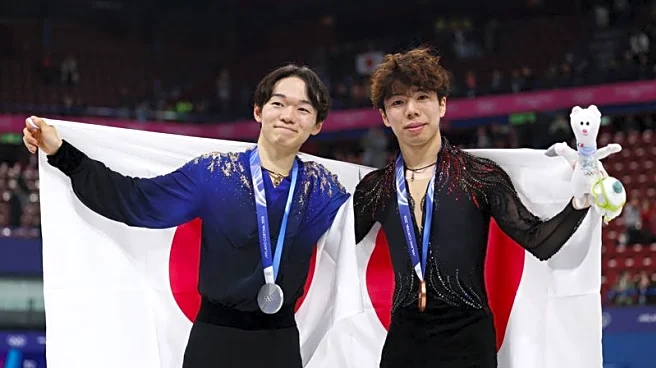Rapid Read • 8 min read
Daniel Dae Kim, a prominent actor known for his roles in 'Lost' and 'Hawaii Five-0', has recently spoken out against what he describes as an 'overcorrection' in ethnic-specific casting in Hollywood. In an interview for 'American Masters', Kim articulated his concerns about the current trend where casting decisions are overly focused on nationality-specific roles for Asian American actors. He argues that this approach often lacks depth and understanding, as many roles do not require such specificity and are not written by individuals familiar with the cultural nuances. Kim emphasized that while nationality-specific casting is important in certain contexts, such as when a role requires authentic language skills or is based on a real person with cultural significance, it should not be a blanket requirement for all roles involving Asian American characters.
AD
Kim's comments highlight a significant issue in Hollywood's ongoing efforts to improve diversity and representation. The focus on ethnic-specific casting, while well-intentioned, may inadvertently limit opportunities for actors by imposing unnecessary restrictions. This approach can also perpetuate stereotypes and overlook the shared experiences of Asian Americans, regardless of their specific national backgrounds. By advocating for a more nuanced understanding of casting, Kim is calling for a shift that could open up more diverse roles for actors and enrich storytelling in the industry. His perspective is particularly influential given his success and experience in the entertainment industry, making his voice a critical one in the conversation about representation and inclusivity.
The entertainment industry may need to reassess its casting practices to balance the need for authenticity with the broader goal of inclusivity. This could involve more collaboration with writers and directors who have a deep understanding of the cultures they are portraying, as well as a more flexible approach to casting that considers the shared experiences of minority groups. As discussions around representation continue, Kim's insights could inspire other industry leaders to advocate for changes that promote both diversity and authenticity in storytelling.
Kim's remarks also touch on broader cultural and ethical considerations in media representation. The push for ethnic-specific casting reflects a desire to correct past misrepresentations, but it also raises questions about how identity and authenticity are defined in a multicultural society. This debate is part of a larger conversation about how media can both reflect and shape cultural understanding, and how it can contribute to a more inclusive and accurate portrayal of diverse communities.
AD
More Stories You Might Enjoy











